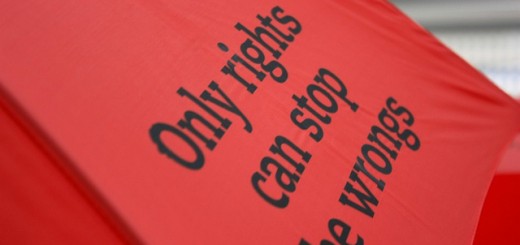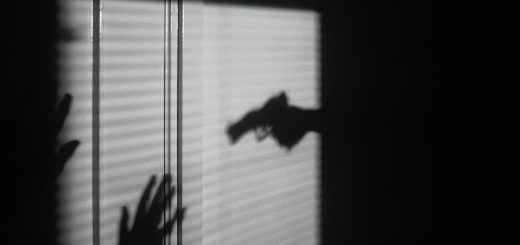Any Jury Inquiry Must Both Be Fair and Appear to Be Fair: R v Kum
The sanctity of the jury process must be maintained, said the Ontario Court of Appeal in a January decision. As well, an accused should not be deprived of the common law right to be tried by twelve people unless there are serious reasons for discharging jurors.
In R v Kum, 2015 ONCA 36, the appellant was convicted in a jury trial of cocaine trafficking and possessing the proceeds of crime. During the deliberation process, the trial judge conducted an inquiry into the jury and dismissed two jurors. It had become clear during the inquiry that the two individuals who were eventually dismissed had been in favour of acquittal, while the 10 remaining members of the jury supported conviction. Justice Feldman, writing for the Court of Appeal in a 3-0 decision, said that the inquiries led to a breach of sanctity of the jury deliberations. She set aside the accused’s convictions and ordered a new trial.
The Inquiry into the Jury by the Trial Judge
During deliberations, the jury sent the judge a note asking for guidance on how to resolve a stalemate. It focused on the fact that two jurors were concerned about the fact that the chain of custody of evidence for three cellphones linked to the charges had been broken. It said that the remaining 10 jurors were satisfied with the circumstantial evidence and had voted in favour of conviction.
The jurors then heard a play-back of some the evidence. After that, the judge received new notes from the jury. One note suggested one juror had religious reasons for not wanting to pass judgment and that one seemed biased against the police. The judge then conducted an extensive inquiry into the conduct of the two jurors in question. This included separating them from the rest of the jury, questioning them in court about their beliefs and the allegations of the other jurors, questioning the complainants and then going on to question all of the jurors. She dismissed two separate requests from defence counsel to declare a mistrial. She dismissed one of the impugned jurors and later, at the juror’s own request, dismissed the second juror after another questioning session. The 10 remaining jurors then voted unanimously to convict the accused, who then appealed the decision.
Concerns About Improper Disclosure and an Unfair Trial
The Court of Appeal focused on the issues of (1) whether the trial judge’s inquiries had led to an improper disclosure of jury’s deliberations and (2) whether the discharge of the two jurors resulted in an unfair trial.
A Survey of the Case Law on Discharging Jurors
In her decision, Justice Feldman wrote that discharging two jurors was only permitted under exceptional circumstances. She noted that section 644 of the Criminal Code, RSC 1985, c C-46, allowed dismissal on the ground of illness or “other reasonable cause.” She reviewed case law about the use of section 644 and noted that the Supreme Court has made it clear that the section is for serious issues only. She cited Justice Arbour’s caution in R v Pan; R v Sawyer, 2001 SCC 42,
It is not designed to encourage jurors to bring trivial complaints about their fellow jurors to the attention of the trial judge in the course of the trial, nor does it contemplate the discharge of jurors over minor concerns (para 97).
She also cited the judgment in R v Cioppa, 2012 ONSC 6832, a case where the trial judge refused to conduct a jury inquiry. That judge wrote,
[T]here appears to be considerable authority for the proposition that the secrecy and confidentiality of jurors and their conduct is to be jealously guarded. Consequently, the test for when the court should embark upon an inquiry under s. 644 is a high one. (para 10)
Justice Feldman added this point from the judgment in R v Giroux, 2006 10736 (OCA): “There is always the potential that the request to eliminate the strife issue is merely an attempt by a majority of jurors to cast off a dissenting minority opinion” (para 28).
A trial judge’s decisions about whether to conduct a jury inquiry and discharge a juror under section 644 of the Criminal Code are subject to discretion and deference on appeal, Justice Feldman wrote. She added,
However, those decisions are subject to challenge when the inquiries result in an intrusion on the confidentiality of the jury’s deliberation process, threaten the integrity of that process, or result in the appearance of unfairness in the trial (para 49).
Applying the Case Law to the Case at Bench
The trial judge knew that the jury was deadlocked 10-2, the two impugned jurors were the minority voters, that the two denied the allegations against them. and that, as evidenced through the inquiry, most of the allegations were based on inference and hearsay. She also knew that defence counsel had, part way through the process, objected to questioning the remaining jurors. The Court of Appeal wrote,
In those circumstances, in order to preserve the secrecy and sanctity of the jury deliberation process and the fairness and perception of fairness of the trial, the trial judge should have exhorted the jury on their duties and allowed them to continue their deliberations (para 58).
This position was, Justice Feldman points out, exactly the type of situation contemplated in the Giroux decision, where the majority was trying to get rid of the minority simply because they disagreed. The extensive questioning of the jury intruded upon jury secrecy and the inquiry asked the jurors to give opinions about other jurors’ thinking processes.
The combination of the extensive jury inquiry and the dismissal of the two minority juror members led to the acquittal. Despite believing the trial’s judge’s declaration that she did not take the position of the two jurors into account when dismissing them, the Court of Appeal found that her actions breached the sanctity of the jury process and gave the appearance of an unfair trial.
The Secrecy of the Jury Must Be Protected
This decision underscores the important role that jurors play in our justice system. Jurors are expected to bring their whole life experience to their deliberations, to assess the evidence to the best of their ability and keep an open mind during deliberations. They are allowed to disagree with each other and discuss their concerns about the evidence openly. To preserve this free exchange of ideas, the juror process must be protected from interference from judges.







Join the conversation